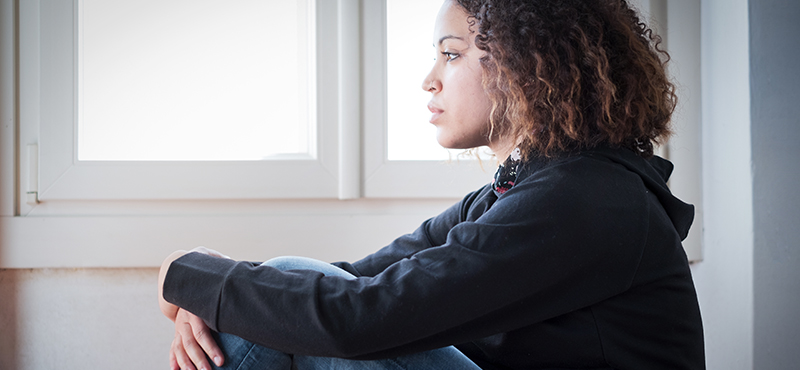Feeling All the Feelings
During your pregnancy and soon after your baby is born, it is normal to feel a lot of emotions. One minute you’re excited, then you’re sad or overwhelmed — sometimes all at once. And it makes sense to have lots of emotions. You’re probably not getting much sleep and you have lots of new responsibilities. Take care of yourself and know the signs of the “baby blues,” postpartum depression and anxiety.
Be Kind to Yourself
No doubt your days are very busy. But doing small things to take care of yourself can go a long way to help you take care of your new baby.
- Don’t worry about being perfect. Just do what you can and leave the rest.
- If you are breastfeeding, keep at it! Nursing releases a hormone called oxytocin which helps with relaxation. Breastfeeding can also help strengthen the bond between you and your baby. If you need help, call your nearest WIC office for one-on-one help from a lactation consultant or breastfeeding peer counselor.
- Get rest. The first few days at home after having your baby are a time for rest and recovery — both physically and emotionally. It can be hard to tell people not to come over. Try to limit visitors and get as much rest as possible. It’s perfectly normal if all you can do is eat, sleep and care for your baby.
- Talk to someone. Talking to your partner, a family member or another mom can be a powerful release that helps you feel better.
- Connect with other moms. Find a moms’ group in your area at WIC or online. These groups give you the chance to talk with other moms who are experiencing the same things.
- Accept help and do less. You can’t do it all—and you don’t have to. Don’t be afraid to ask for help with the baby and household chores. If the normal stuff doesn’t get done, that’s okay, too.
- Pay attention to your feelings. Notice how you’re feeling and spend some time on yourself.
- Go outside. Sunshine and fresh air can help boost your mood. Take your baby for a walk or sit outside for a few minutes.
- Do something you enjoy. Take a few minutes each day to do something you enjoy. Call a friend, listen to music or watch your favorite show.
Feeling Blue?
Big hormonal shifts happen after your baby is born, and this can feel like an emotional rollercoaster. Many moms have what is called the “baby blues.”
You may have the “baby blues” if you:
- Feel like you just aren’t yourself
- Cry sometimes or have trouble managing your emotions
- Feel overwhelmed, but are still able to take care of your baby
The Baby Blues – How to Get Help:
Take special care of yourself — you matter!
Have your partner watch the baby, get a babysitter or team up with another mom to share childcare so you can take a break.
The baby blues are normal and should go away within a few days or weeks. If your symptoms last longer than two weeks, you could have postpartum depression or anxiety.
If you feel depressed or anxious when you are pregnant or after your baby is born, you are not alone. After having a baby, 1 out of 8 women experience postpartum depression. If you are worried about how you’re feeling, here are some helpful resources.

You may have postpartum depression or anxiety if you:
- Have strong feelings of worry or anxiety that come on with no warning
- Feel foggy and have difficulty completing tasks
- Feel “robotic,” like you are just going through the motions
- Are uninterested in things you used to enjoy
- Feel very worried around the baby and your other children
- Have scary, upsetting thoughts that don’t go away
- Feel guilty or feel like you are failing at motherhood
- Have panic attacks – symptoms can include a pounding heart, sweating and hot flashes, shaking, tingling or numbness, and fear of dying or “going crazy”
Postpartum Depression and Anxiety – How to Get Help:
- Contact your health care provider or visit a clinic.
- Call Postpartum Support International at 1-800-944-4PPD (4773) to talk to someone who can help you find support and resources in your area.
- Talk to someone about your feelings — your partner, a family member or a friend. You don’t have to go through this on your own. People are here to help you.

Help is Available
Depression and anxiety are not signs of weakness or a sign that you are doing something wrong. They are medical conditions and sometimes they don’t go away on their own. There are many treatment options available including counseling and medications that are safe for you and your baby while breastfeeding. Your health care provider can help you explore your options.



 Have any questions?
Have any questions?
